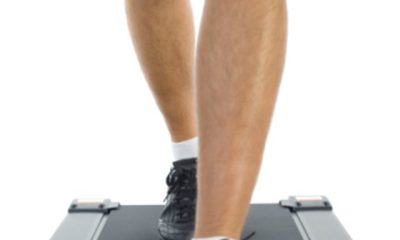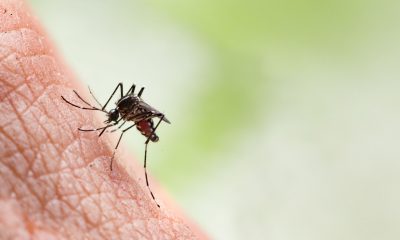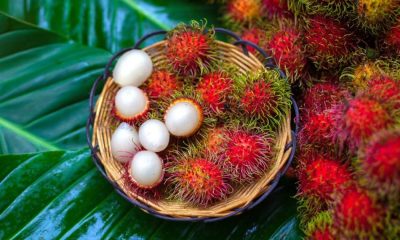Health
Kava kava: what is it, benefits and how to drink it
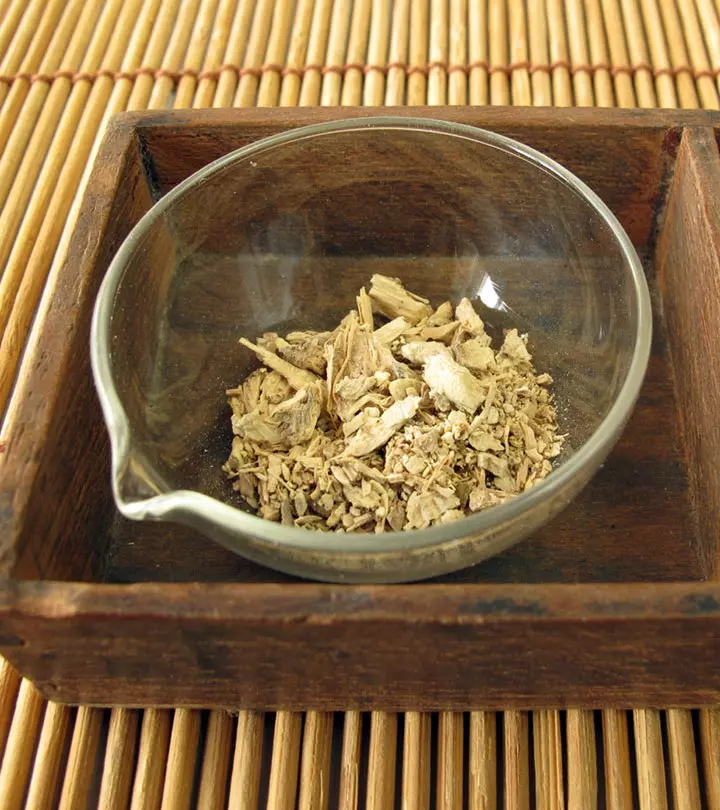
Kava kava is a medicinal plant that is widely used in traditional medicine to treat cases of anxiety, agitation, or tension. Its scientific name is Piper methysticum and it can be found in health food stores, online stores, and even in certain supermarkets.
This plant has some very important active substances known as kavalactones, which, according to some studies, apparently act in a very similar way to that of some anxiolytic drugs, regulating the action of the neurotransmitter GABA in the brain.
In this way, kava can be an excellent natural treatment option for cases of anxiety and agitation, before opting for the use of drugs.
However, for it to be used correctly and in safe doses, its use must be guided by a naturopath, phytotherapist, nutritionist, or other health professional specializing in the use of medicinal plants.
How Kava kava works
The exact mechanism of action of this plant is not yet known, however, several studies indicate that the kavalactones in Kava kava have a function very similar to that of benzodiazepines, which are the main group of drugs used in the treatment of anxiety.
This means that the plant manages to bind to the brain receptors for the neurotransmitter GABA, improving their action.
As GABA is the main responsible for inhibiting the central nervous system, allowing the person to relax, feel less fear and be less anxious, this plant has a powerful calming effect.
Likewise, some studies indicate that Kava can be used in cases of seizures, since one of its kavalactones, kavain, has an antagonistic action on sodium channels, which generates the stabilization of the electrical activity of the neuron.
How to drink
The used parts of Kava kava are its rhizomes, which is where the highest concentration of its active substances is found. There are several ways to use this plant:
Supplement (capsules): this is the most effective form, as it uses a more concentrated extract of the active substances of the plant.
To use it in the form of a supplement, the ideal is to consult a phytotherapist; however, the generic dose indicated is normally 60 to 120 mg per day in the case of extracts with 50 to 70% concentration of kavalactones;
Tea: Kava rhizomes can also be used to make tea, however, in this way of using it is not possible to fully know what the concentration of active substances is.
However, it is recommended to place 1 tablespoon of Kava kava rhizomes in 500 mL of boiling water for 10 minutes.
Then, remove from the heat, strain, let it cool and drink 2 to 3 times a day or at times when you feel the most anxiety, for example.
Ideally, a phytotherapist or a health professional specialized in medicinal plants should always be consulted, since their use, dose, and treatment time may vary according to each person and their medical history.
Possible side effects
The main side effect of the use of Kava kava is the appearance of serious lesions in the liver.
However, the only studies done on this effect were carried out in people who also had other habits that could have affected liver function.
In this way, although the true effect of Kava on the liver is not yet known, it is recommended not to exceed the dose of 120 mg per day.
Contraindications
Kava kava is contraindicated in pregnant and lactating women since there are no studies on its safety during these phases of life.
In addition, it should be avoided by those who suffer from liver diseases and those who are under treatment with antihypertensive drugs, at least without the indication of a health professional.
Health
10 Benefits of charcoal soap and side effects

Table of Contents
Health
10 Benefits of long bell peppers

Discover the 10 health benefits of long bell peppers.
The long peppers may sound unfamiliar to some, but not in the ears of the Javanese. In Java, it is also known as Javanese pepper, with the scientific name of Piper Retrofractum Vahl.
It is considered as a spice and is commonly used for jamu, which is an Indonesian traditional herbal drink, hence its nickname is “cabe jamu” or jamu pepper.
If you want to learn more about long peppers, you are absolutely on the right track! For your information, long peppers grow at a maximum altitude of 600 m with 1,259 mm/year of rain. Anyway, what exactly is a long pepper?
Long peppers are also known as Balinese pepper or Indian pepper, following their original roots in South Asia, particularly India and Sri Lanka.
In India, long peppers are called ‘pippali’. Long peppers have four main functions, especially as a home remedy, cooking ingredient, medicinal herb, and catalyst to enhance the effects of other herbs.
The benefits of Javanese long peppers are somewhat similar to the health benefits of Indian long peppers.
Just as their scientific name suggests, long peppers contain piperine. Piperine is an alkaloid that works as a stimulant for poor blood circulation. Piperine is also found in black pepper and is also responsible for making both of them spicy.
Now here is the main question; Do long peppers have other uses besides being spices and a cooking ingredient? Yes, it does, and here are the health benefits of long pepper.
10 health benefits of long bell peppers
1.- Good for liver ailments
• Liver disease arises from our habit of indulging in unhealthy junk foods.
• At the end of the day, the liver becomes overworked.
• Long bell peppers balance the liver’s workload by removing toxins that have built up in the liver and that have been produced by digesting these types of foods.
• Here are also the best quick way to detox the liver after several years of drinking.
2.- Helps to lose weight
• The long pepper can burn fatty acids similar to other types of pepper without any side effects.
• In fact, it is considered a safer and healthier alternative compared to its clinical counterparts.
3.- Reduces the risk of diabetes
• Like the health benefits of red rice for diabetics, long bell peppers help alleviate diabetes by regulating the rate of glucose released into the blood system.
• Long peppers also stimulate insulin production.
• That is the main reason why long pepper is highly recommended for diabetic patients.
4.- Decreases bacterial infection
• The risk of bacterial infection may incline as the daily temperature increases.
• Unhygienic food, as well as unsterile water, can be prone to bacterial infection, causing an upset stomach.
• Long peppers can be used to counter these occurrences.
5.- Serves as a cough treatment
Long peppers treat a cough by making it a simple remedy. This is how you do it:
Step 1: Take 1 to 2 grams of the spice and fry it with a little ghee. Ghee is a kind of Indian butter.
Step 2: Bring it in while it cools.
If ghee is not available, you can use honey instead.
6.- Relieves indigestion
• The content of long peppers is capable of curing digestive problems.
7.- Decrease fever
• The antiseptic and antiseptic properties of long pepper can reduce fever or relax the throat.
• You can easily reduce a fever by mixing long pepper with a hot bowl of soup.
8.- Relieves toothache
• You can also cure a toothache by making a paste with pepper, salt, and water.
9.- Cure diarrhea
• Diarrhea can be cured by consuming a long pepper soup.
10.- Relieves asthma
• Long peppers are an alternative to relieve occasional asthma attacks and other asthma symptoms.
• However, you should not use it as a substitute for respiratory medicine.
How to use long peppers for traditional cures
About the previous pointers on the health benefits of long pepper, here are the simple recipes to make your long pepper remedy.
1.- To lower the fever
• Step 1 – Prepare 3g of dried long peppers
• Step 2 – Smooth until it reaches its softest state.
• Step 3: Infuse with hot water and consume.
• Despite its hot taste, it is suitable for both children and adults.
2.- It is a cure for toothache
• Step 1 – Prepare 3 long pepper leaves
• Step 2: squash them, but not to their smoothest shape.
• Step 3: prepare it in warm water
• Step 4: Use the gargle formula. Do it regularly until the toothache is completely gone.
3.- To overcome «Masuk Angin»
Masuk angin is an Indonesian term to describe the uneven distribution of gases within the body characterized by cold-like symptoms.
It has no direct translation into English, and no specific knowledge of this ‘disease’, therefore making ‘masuk angin’ is a large loose term. Long peppers can be treated ‘masuk angin’ by following this simple formula:
• Step 1 – Prepare 3g of long peppers, some brown sugar, ginger, and “temulawak” (Curcuma Zanthorrhiza).
• Step 2 – Boil until everything is softened and add warm water.
• Step 3 – Drink that formula while it’s still hot.
4.- Prevents abdominal spasm
• Step 1: Take 3 long pepper leaves and add a glass of water.
• Step 2: Boil both of them fully and let them cool for a while.
• Step 3: consume completely.
5.- Clean the postpartum ovary
• Step 1: Prepare 3 grams of long pepper roots.
• Step 2: Add warm water and bring to a full boil.
• Step 3 – Filter the water when you are done.
• Step 4: Consume the boiled water until done. It is suggested to consume it while it is still hot.
Those are just the healthy creations you can make with long bell peppers. The recipes are not proprietary so you can easily adjust them to better suit your preferences or requirements.
However, it is still highly recommended that you follow exactly what is written above. In addition to the long bell pepper uses listed above, there will be more below, however, the ones below are not specifically categorized by disease.
Generic long pepper recipe
Step 1 – Boil 150cc of water.
• Step 2 – Make it with 4 grams of pepper powder.
• Step 3: Consume while hot to get your maximum benefit.
If there are still long pepper powders left, you can also use them like this:
• Fill it inside the capsules for consumption at any time.
• Apply the powders directly to the affected area for toothache.
• Use it to treat swollen gums.
• In addition to health, long peppers are equally useful for planting and soil fertility.
• Thirty-eight uses of long peppers can be obtained by using them in a “jamu” or a traditional herbal drink, which has the potential to cure practically everything but the insecticide.
• Long pepper does not work with insecticide because it kills the reaction of the insecticide inside the plants.
Those are just the top long pepper health benefits that may sound unfamiliar to you, especially among the youngest these days. Either way, hope it helps!
Health
Ozempic for weight loss
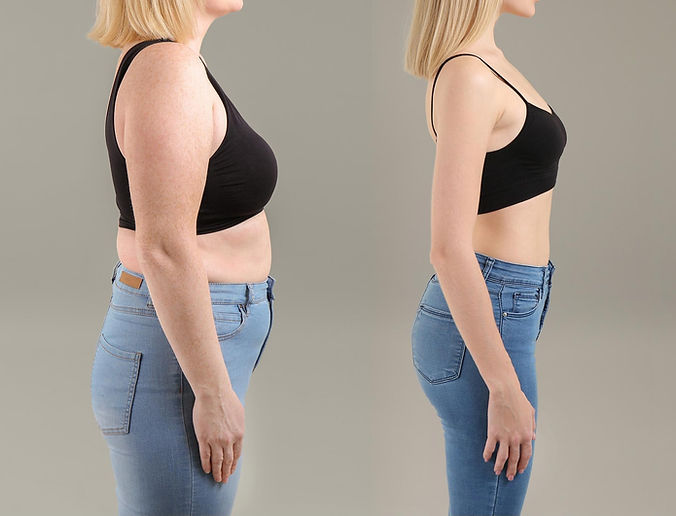
Table of Contents
-

 Benefits4 months ago
Benefits4 months agoThe Benefits of Joining Gym Lumolog – Improve Your Fitness & Health
-

 Food1 year ago
Food1 year ago10 + Benefits of carrot juice and side effects
-

 Health1 year ago
Health1 year ago50 Super Healthy (And Very Often Cheap) Foods
-

 Health1 year ago
Health1 year ago5 Shocking health benefits of kinkeliba and side effects
-

 Health1 year ago
Health1 year ago15 health benefits of soursop leaves tea and side effects
-

 Food1 year ago
Food1 year ago8 shocking benefits of leek juice and side effects
-

 Health1 year ago
Health1 year ago15 Benefits of lipton tea and side effects
-

 Health1 year ago
Health1 year agoBenefits of guava leaves Sensually



